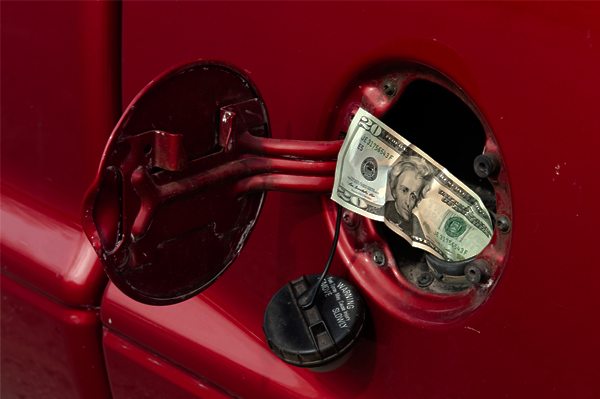Renewable Fuel Standard: A Misguided Policy
Ethanol advocates delight in touting the Renewable Fuel Standard (RFS) as an “American Success Story.” Yet several years after its passage, some in Congress are finally realizing that the RFS stands not as a central-planning success story but as a symbol of misguided government mandates.
The RFS requires refiners to blend ever-growing amounts of ethanol into gasoline every year with the goal of blending 36 billion gallons by 2022. To comply with the law, refiners must either blend the minimum levels of ethanol or purchase credits called Renewable Identification Numbers (RINs). However, RIN prices spiked from 7 cents in early 2013 to over $1 in March and have remained high since. This volatility increases compliance costs on refiners, which puts upward pressure on prices at the pump.
Ethanol supporters argue that the spike in RIN credits wouldn’t matter if refiners just bought more ethanol, but this ignores simple economics. If it made economic sense to purchase more ethanol, refiners would just purchase more ethanol. The fact of the matter, as reflected in the volatile RIN market, is that refiners don’t think buying more ethanol is a good deal. Yet instead of letting people decide for themselves how much ethanol to use, the federal government insists on mandating the use of billions of gallons of ethanol a year.
RIN prices are likely so high because refiners recognize that the U.S. is approaching the maximum amount of ethanol that can be blended into gasoline. This limit is called the “blend wall.” The problem is that federal law requires ever-increasing amounts of ethanol to be blended into gasoline, but current law, regulations, and warranties only permit most cars to run on gasoline that is at most 10 percent ethanol (automakers also produce some vehicles that are “Flex-Fuel” vehicles that can use fuel that is 85 percent ethanol). Automakers do not certify the vast majority of their vehicles to run on gasoline that more than 10 percent ethanol.
Even though automakers have warned against introducing higher levels of ethanol into gasoline, the Environmental Protection Agency (EPA) wants to approve E15 (gasoline that is 15 percent ethanol) for production. However, E15 could accelerate engine failure in the 95 percent of cars that aren’t certified to use it. Maybe worse, the small engines of boats, lawn mowers, weed eaters break down much more quickly with ethanol, even gasoline with just 10 percent ethanol, according to AAA. In turn, several car manufacturers have said their warranties won’t cover claims related to E15 use.
Another issue with the RFS is that as ethanol production remains essentially stagnant, the federal mandate continues to rise. A new report from the Energy Information Administration (EIA) finds that U.S. fuel ethanol production capacity was 13.9 billion gallons per year as of January 1, 2013, compared to 13.7 billion gallons per year at the same time in 2012. Even though the ethanol industry was capable of producing less than 14 billion gallons in 2012, the RFS required refiners to blend 15.2 billion gallons that year. And despite only slight production increases since last year, the RFS requires 16.5 billion gallons to be blended in 2013.
On top of harming engines that aren’t designed to use high amounts of ethanol, ethanol reduces the fuel efficiency of motor fuel. Ethanol contains 33 percent less energy per gallon than gasoline, which means as ethanol content in gasoline increases, fuel economy decreases. This trade-off might not be an issue if ethanol was cheaper than gasoline, but it is not. For example, AAA’s Daily Fuel Gauge report shows that E85 gasoline costs about 50 cents more than a regular gallon of gasoline when adjusted for the energy difference. On top of paying more per gallon, Americans will need more gallons to get where they’re going – spending more to get less.
As expected, mandating inefficient motor fuel that can harm engines comes at a price. A recent study found that by 2015 implementing the RFS will increase diesel costs by 300 percent, gasoline costs by 30 percent, and reduce take-home pay for American workers by $580 billion. The study warns of a “death spiral” in which increasing blending mandates depress gasoline sales, which leads to supply disruptions and makes compliance unattainable.
Some of the most vocal opponents of the RFS are livestock groups that depend on affordable corn and humanitarians who oppose using food for fuel while the Third World struggles to find sufficient food. Broad-based opposition to the RFS reflects a misguided policy that enriches ethanol producers at the expense of everyone else. Ultimately, Congress should eliminate all mandates and subsidies that distort the energy market. Repealing the RFS is a good place to start.




